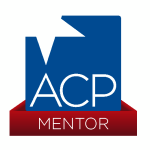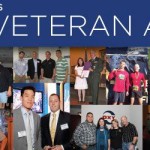Isn’t it good to have a little help in our transitions and in the shifts we are called on to make, in life, health, wealth and military service status?
MilSuccessNet team members seek to support each other and to share the resources we uncover on this site. Our guest writers are a valued and critical asset in this exchange. They present sources of support and often solutions to the many questions that face all of us in the process.
 Writer Jonathan Raab recently interviewed ACP founder, Sid Goodfriend. No matter where YOU are personally in your own transition you can benefit. And, you’ll see that resilience, the main ingredient we look to add on MilSuccessNet is part of the plan at American Corporate Partners. Now, on to Raab’s and Goodfriend’s own words……..
Writer Jonathan Raab recently interviewed ACP founder, Sid Goodfriend. No matter where YOU are personally in your own transition you can benefit. And, you’ll see that resilience, the main ingredient we look to add on MilSuccessNet is part of the plan at American Corporate Partners. Now, on to Raab’s and Goodfriend’s own words……..
Sid Goodfriend, founder and director of American Corporate Partners (ACP), wanted to help veterans find meaningful work in the corporate world – by providing them professional connections and advice on a direct, personal level.
“It’s anticipated by the Pentagon that there will be more than 200,000 people who will leave the military in each of the next five years,” he said. “So you have a pool of previous service [veterans], in the next five years, of 3,000,000 people. And we’re trying to scale our program to allow tens of thousands to take advantage of it, and that’s through the online community that we’re building.”
Although he had spent his professional life focused on investment banking for the likes of Merrill Lynch, PepsiCo, IBM, and General Electric, the reality of a broader, more dangerous world literally came crashing down around Sid Goodfriend one September morning.
“On 9/11, I was right downstairs across the street from the World Trade Center, when the second plane went into the Towers,” he told me via Skype from the American Corporate Partners headquarters.
“Like it did for quite a number of people, it got me thinking about things that I hadn’t really focused on before.”
Sid was poised at the center of an interface of defense, government, and business leaders, all of whom had an interest in assisting individual veterans in their transition back to civilian life.
“We launched a program in 2008, and the concept was to create a program where corporate leaders – mid-level and senior-level executives – would each mentor a returning vet who had an interest in business,” he said.
“When I was thinking about this over the course of the year, I realized that one, if not the primary reason that I was able to be successful as a banker without really a lot of experience, but with some passion and some hard work… is that I had a wide variety of mentors, people who helped me out throughout my career.”
“Mentorship”, he said, is a key to success in the business world.
He first reached out to Indra Nooyi, the head of PepsiCo. She agreed to provide mentors for the program.
Sid then approached John Mack, CEO of Morgan Stanley. His response was emphatic.
“Not only will I join, but I’ll be your first mentor,” he told Sid.
Other companies quickly followed suit – G.E., IBM, American Airlines. By the end of 2008, American Corporate Partners had almost 150 veterans in the program in six cities.
Each mentorship is a year long. A veteran is paired with a mentor from a company or field that he or she has an interest in joining. In some locations, the veterans and mentors meet face to face. Others conduct a remote mentorship, via Skype, phone, or email.
(Read the American Corporate Partners program overview)
The mentors provide advice, networking suggestions, and help the veterans to prepare for interviews. The veterans are encouraged to reach out to their mentors whenever they have a question or want some advice.
“So people are coming to us and saying ‘I want to understand what career opportunities are out there,’” Sid said. “Other people are coming and saying ‘I have never been on an interview before.’”
Some veterans want to start their own businesses. ACP also provides mentors who are experienced entrepreneurs who understand the difficulties of independent employment.
“Today, four or five years later, we have more than 1600 veterans nationwide currently in the program,” Sid told me. “We counted recently that we had folks complete the program from more than 900 towns across the country.”
Over 40 companies continue to participate in the program.
Veteran focus front and centre
“We found the major issue for many vets in our program is not employment. But it’s underemployment. The issue for these guys is not getting a job, but it’s getting a good job, a career.
Some applicants, like other veterans, suffer from physical, emotional, or psychological issues. ACP has adopted a person-first model. That is, the individual is not defined by his or her disability.
“We had a fellow who had very severe TBI [traumatic brain injury]. He was enlisted right out of high school, was in the first wave to go into Iraq, very severely wounded, comes back, and had a stroke at the age of twenty. Turns out he had very severe TBI.”
ACP linked him up with a mentor from IBM, and the two spent months preparing his resume and coaching him for an upcoming interview. His mentor worked with him until he was ready.
Sid was quick to point out that he didn’t want to generalize veterans, but that, as a group, they tend to bring positive qualities to the table.
“One way or another, they figure out how to get something done, and that is a skill that you may have to develop out of necessity,” he said.
“If you’re in the hills of Afghanistan and you’ve got something to accomplish, you’ve got to figure it out because the alternative isn’t so good.”
While some companies hire veterans for good PR, Sid insists that there are large numbers of veterans at companies like Boeing, UPS, and Goldman Sachs because they make great assets.
“So the appreciation in the work force for those who served – not just a patriotic appreciation – but an appreciation for the person who has volunteered for service, is perhaps a little more widespread than people think,” he said.
View a Fox News interview with Sid Goodfriend (Fox News was an early ACP mentor participant)
Jonathan Raab is a veteran of the Afghanistan War. He is currently working on a novel, FLIGHT OF THE BLUE FALCON, about the post-modern war and veteran experiences. You can follow him on Twitter at @jpraab. He lives in Denver, Colorado, a recent transition.
Be notified of valuable resources for you and new posts, first. Subscribe now at top right of page, with confidence of your privacy and spam free reading. Guaranteed.
Find ACP on Facebook.
Check out the ACP site online, here.
Read about one veteran’s first steps on an alternate path in Following Will Part 1 and Part 2
Corporate interview wardrobe tips from Leon Scott.




[…] heard about the ACP program – and the event at Sullivan’s – from a friend with whom he took a Transition Assistance […]